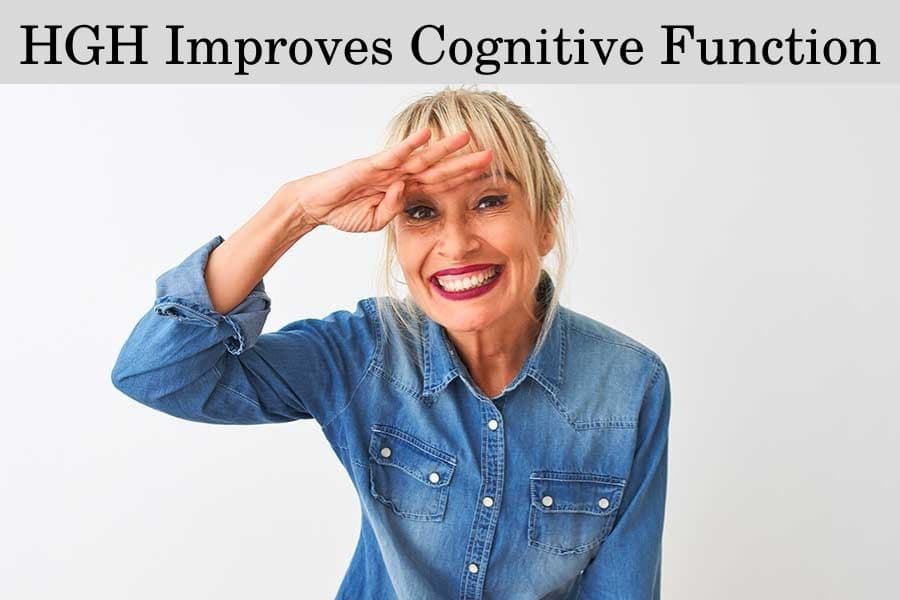Adults with growth hormone deficiency (GHD) often complain of brain fog, difficulties concentrating to read or study, and extreme forgetfulness that affects their professional and social life.
That’s because your brain needs sufficient levels of HGH to support its neuroplasticity – a key process in learning and memory formation.
As a result, GHD can lead to impaired memory, poor concentration, and reduced attention span. If left untreated, the condition can result in a faster cognitive decline and often leads to a reduced quality of life.
If you have GHD, the most effective way to increase your growth hormone levels and restore the normal function of your brain is HGH therapy. The treatment involves injections with exogenous growth hormone.
HGH treatment improves brain function
HGH can directly affect the brain via growth hormone receptors (GHR) which are mostly found in the hippocampus.
By triggering GHR, the hormone has been shown to increase the density of the nerve cells’ “appendages” called dendrites that help them connect with each other and form a neural network.
As a result, HGH improves the formation of connections (synapses) between neurons and stimulates neuroplasticity.
In addition, the main anabolic mediator of HGH – insulin-like growth factor-1 (IGF-1) has been found to increase the number of progenitor cells inside the central nervous system of adults.
This may stimulate the formation of new neurons and increase the repair capacity of the brain.
HGH improves cognition
Multiple studies have shown that HGH injections can ameliorate the negative effects of GHD on brain function and improve various cognitive parameters.
A meta-analysis of 13 studies shows that adults with GHD have reduced cognitive performance compared to their healthy peers, and HGH therapy can successfully improve their attention, memory, spatial ability, and reaction time.
Scientists also report that the therapy can improve symptoms of anxiety and depression, which can seriously reduce cognition in affected patients.
Furthermore, studies revealed that the benefits of growth hormone therapy on cognition, mood and behavior result in a significant improvement in the quality of life in GHD patients.
Apart from its benefits against cognitive decline and mental disabilities, HGH therapy increases and maintains bone mineral density. These effects of therapy help reduce the risk of physical disabilities, such as osteoporosis and bone fractures.
How long does it take to feel HGH effects on the brain?
The majority of trials show the greatest improvements in attention and memory which occur after 3-6 months of HGH therapy. Those benefits continued increasing until they reached their maximum towards the 12th month of therapy.
On the other hand, some aspects such as spatial ability were significantly improved as soon as the first month of treatment.
Unfortunately, there is no treatment that can restore the function of the pituitary gland in patients with GHD. Therefore, the benefits of HGH therapy for mood and cognition are not permanent and your symptoms may return after you discontinue the treatment.
What else do you get with improved brain health?
Improving your brain function can help boost success at your job or business. You will experience higher creativity, productivity, and better decision-making.
What is more, you will be able to stay focused for longer and learn new skills faster.
Better brain function can also help your personal and social life by aiding your communication skills and helping you form better sentences.
Get a free consultation with our medical expert for any questions about hormone replacement therapy

